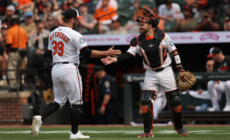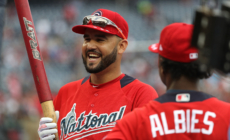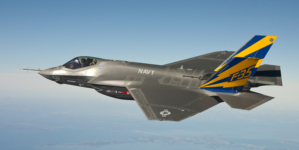-
America’s Best Continuing Care Retirement Communities 2026 Survey - 18 mins ago
-
25 Hospitalized After Delta Flight Is Hit by Strong Turbulence - 46 mins ago
-
Navy F-35 Jet Crashes in California, Pilot Safely Ejects: What We Know - 53 mins ago
-
All-Star Mason Miller Benched Wednesday As Surprising Trade Partner Emerges - about 1 hour ago
-
Sneaking Into the Spy Museum’s New Vault - about 1 hour ago
-
Cubs Make Trade for Andrew Kittredge From Orioles: Reports - 2 hours ago
-
Man Arrested in Killing of Couple Hiking With Kids in Arkansas - 2 hours ago
-
Lance Lynn Explains Why Being Traded to Yankees ‘Really Helped’ Later in Career - 3 hours ago
-
Key Takeaways From the D.C. Plane Crash Hearing - 3 hours ago
-
Canadian Wildfires Map Shows Three US States Warned About Air Quality - 3 hours ago
I’m the Highest-Earning Esports Player. But I Don’t Play for the Money
My earliest gaming memories are of playing Mario on the Nintendo Game Boy. It was a big thing at school, and then after that came Pokémon. My mom even has a picture of me playing the Game Boy while on the potty.
I don’t know how I got the Game Boy. I think everybody was riding the same wave and it was the new fad, but my parents weren’t really gamers. They are into sports and traditional games, such as badminton, volleyball, and cards.
I love gaming, but I also like sports, and I can see a natural correlation between the two. They’re both about competing and reaching your potential, and breaking down how the game could and should be played to maximum effect.
The gaming was just a generational thing I guess. All my friends at school were playing console games together, like connecting our Game Boys together to play Pokémon.
And we advanced through games together, going to each other’s homes to play each other’s consoles, working together to defeat difficult puzzles, and so on.
In my early gaming years, there was some concern from my parents about how much I was playing. It could get a bit extreme where I would cut into my sleeping hours, and I even developed facial tics, which often happens to people who play too much.

Benedikt Wenck/picture-alliance/dpa/AP Images
They were asking the stereotypical questions of kids who love to game a lot. What will my future look like? Who will I turn into? Will I be able to take care of myself? And can this really be a career?
It was just a couple years of worry, but my parents were always very supportive. There was never any crazy resistance to my gaming.
Then, when I got my first paycheck from gaming, even though I was very young and it was miniscule, it helped to calm their concerns about it all. They felt this would all work out for me one way or another.
I started to realize this could be a career for me in the very first game I played seriously, Heroes of Newerth. There were some tournaments where we were able to win a few thousand euros.
That didn’t happen often, and they weren’t amounts of money you could live on, but things started to pick up for me around that time, in my mid-teens. I became hopeful and optimistic about the outlook for esports and my game. It was a key moment.
There were other big splashes in esports after that, but nothing compared to what the first TI did in 2011.
TI, or The International, is a yearly esports competition playing Valve’s Defense of the Ancients (DotA) 2, an online multiplayer battle arena game of two opposing teams of five people, with big cash prizes.
When they put $1m in for the prize money that first year, a lot of people doubted the organizers would pay out. But they did, and that moved everything very quickly for esports, taking it to another level.
I started playing the original DotA around the age of 10, and continued through my teenage years, and started to build a public profile with my gamertag, N0tail.
Becoming better known was challenging. I was going through puberty and I’m quite introverted. I’ve always had friends and I love socializing, but I didn’t want any fame. I never asked for that. I found it daunting.
When I started out, I just wanted to play video games. So becoming well-known in esports was a bit strange at first. People watched my games and started to feel I was a character that they knew well, even if we hadn’t met.
Most people show a lot of respect when they do meet me and my experience with esports fans has been very positive. But I’m a pretty reserved guy, and it was all new and peculiar to me in those early years as I became professional.
There have been a few moments where people really want to give their very strong opinion to you, about who you are and what they think you need to hear from them, and there’s no chance to engage them in a fair conversation.
But most interactions are extremely positive. I’ve met people who said I’ve made a positive difference in their lives, especially during COVID, and they have loved watching our documentaries about our OG Esports teams. Inspiring them makes me most proud.
There’s an element of ego in professional esports, just like in all other competitive spaces. But I wouldn’t say I have had a big ego in my life. I don’t really care. I prefer my privacy. Honestly, if I could, I would hit a button to make me unknown again.
I’d love to enjoy DotA events casually again, but that’s something I can’t really do anymore. I’m OK with it. I do enjoy connecting with fans who love the game and being out there, but other people thrive more than I do with the constant attention.
I’ve been on a long journey of trying to understand my role in esports. We’ve reached a point where the industry is more collaborative and we’re all in the same boat, enjoying it together.
When I started, there was a sense of alienation for players, and the experience felt weird, but now it’s not weird at all.
I think that’s in part thanks to the media training we’ve had from organizations like Valve, who shaped our understanding of the esports industry: What it is, why it exists, and how it’s developing.
It is all about the athletes playing on stage, giving it their all to compete deeply in a game, breaking it down and understanding how it’s supposed to be played. They spend their life doing that and there are many people who love watching it for entertainment.
The best moment of my professional esports career so far is winning the TI8 final with our OG Esports team. When we won game five to take the series, securing the victory, it was professional ecstasy. Just the most gratifying experience.
We in the team gave so much of ourselves to prepare for the tournament and then in our performance. It felt like torture. But having it work and deliver more than we dreamed of was a crazy feeling.

Text100/Red Bull Content Pool via AP Images
The worst moment was right after I left the Cloud9 team I was a part of in 2015. We spent half a year to get to the TI5 tournament and then delivered a terrible performance. I felt so drained by that project and it wasn’t what I had hoped for when I signed up.
I didn’t feel like I was getting where I wanted to with the game. It was my lowest point. I was very close to calling it and taking a year off, seeing if I would return. But I’m not really sure what would have happened if I did take that break.
Then, that same year, I founded OG Esports, and I lead our brand, which I’m very proud of.
I haven’t actually played a single game of DotA myself in two years now. I stopped enjoying casual games of DotA a few years before that. It became a chore to me because I played so much professionally.
I hold the title of the highest-earning esports player with over $7m in cash prizes. But I’m not bothered about defending that. I don’t really crave that kind of status. I play to win and for my own reasons, and I always have.
I want to know: Can I understand this game properly? Do I have the competence to break this down to execute on a set a goal?
I certainly got what I wanted from esports. But I think it’s funny that I’m still the highest earner from cash prizes. I feel like that should have been beaten by now, but perhaps COVID worked in my favor by slowing things down a bit on the tournaments front.
I’m not coming back to DotA to maintain anything. I don’t want to. I don’t want to give my time. I used to give all my time to the game. Now, I don’t.
This is the one thing I really don’t want to give any more of. I want to give an amount of time that is fair to me and allows me to live a more normal schedule in my life. I have my weekends back. I can stay put more often because I don’t have to travel all the time.
I did struggle with traveling around the world. I enjoy being in different places, but the act of traveling is very tedious and draining. I don’t like airplanes. I don’t like airports. I don’t like how it tests my immune system. I like routine, especially with my diet and a few other things. Jet-life can be very rough.
So if somebody takes the top spot on the leaderboard, then god bless. I’m happy for you.
I think the esports industry would benefit from fixed, annual events in single locations. I think that makes sense and is a healthy way to stabilize things.
Organization is simpler, it’s better for building fan engagement, there’s less travelling around for players—it’s just easier to make events like that successful rather than shifting location every time. It really worked when TI was held in Seattle for a few years.
There is a lot of sacrifice to get to the top of esports. I was more than happy to give up on all sorts of things in my life for the game when I enjoyed it. I took a lot of pleasure from the game, and the joy of the grind. I got more than I could have asked from DotA.
I have no regrets, but it stopped being fun when I realized I was idealizing a future with more time for myself. So I went there. Things changed in my life, and that’s good.
My number one priority now is myself and the people, creatures and things I hold hear. I’ve shifted in that sense. The game used to be everything to me. I was ready to sell my soul for it, and I’m not anymore. Definitely not.
After my own wellbeing, my very high priority is achieving something more with OG Esports and our players and teams.
I wish for nothing more than for these people to have the same experience that I did, or an even greater one; achieving incredible things together and pushing our abilities to the limit.
I love competition. I live for this. It’s a huge part of my life. I want to do it right and for our people to feel like they’ve been given the best opportunity and the best chance to achieve.
I just want to help. To give insight and share my experiences, and to give when somebody is ready to receive. I think it’s part of my calling.
Johan “N0tail” Sundstein is the founder of OG Esports. His memoir, Character Beats Talent, publishes in English in Fall 2024.
All views expressed are the author’s own.
As told to Shane Croucher.
Do you have a unique experience or personal story to share? See our Reader Submissions Guide and then email the My Turn team at myturn@newsweek.com.
Source link





















